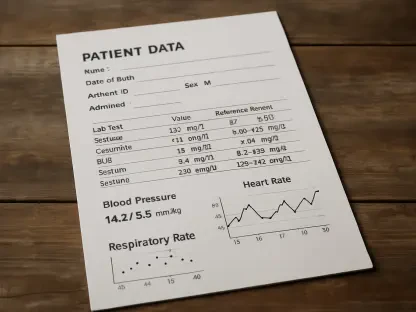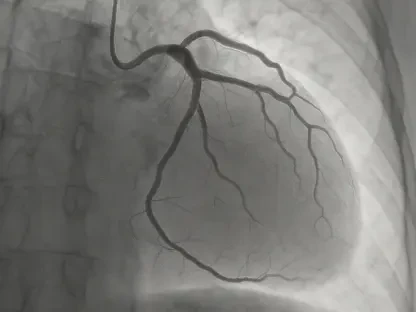The recent lawsuit initiated by a coalition of 23 states and Washington, D.C., against the U.S. Department of Health and Human Services (HHS) is raising critical concerns about the potential impact of over $11 billion cuts to public health funding. These cuts, originally allocated during the COVID-19 pandemic, pose significant risks to ongoing and future public health emergencies, according to the plaintiffs. The legal arguments, public health risks, and broader implications for state health initiatives form the core of this debate.
Legal Action Against Public Health Cuts
Rational Basis for Funding Decisions
The plaintiffs argue that the public health funding cuts were executed without providing a “rational basis.” They emphasize that the funds were intended to address broader public health concerns, not restricted to the COVID-19 pandemic’s duration alone. This argument highlights the broader vision that these resources were meant to sustain public health infrastructures against a variety of medical challenges. With increasing rates of infectious diseases, it becomes evident that any diminution in these funds could hamper the states’ ability to respond effectively.
Moreover, the states underline the irrationality of significantly reducing the funds when public health needs are ever-evolving and increasingly pressing. The complaint places particular importance on the detrimental impact these cuts would have on proactive measures and preparedness for health emergencies. By challenging the abrupt reduction, the lawsuit questions the legitimacy of the decision-making process, arguing that such an action lacks the reasoned justification necessary for enacting policies that affect public health critically.
Congressional Intent
Another key point in the lawsuit is the absence of Congressional intent to limit the funding strictly to the pandemic. The states contend that these funds were allocated for sustained public health efforts, encompassing various health issues beyond just COVID-19. Congressional foresight provided these grants with the understanding that public health systems need continuous support to manage upcoming and existing medical challenges. Such investments, by design, are to extend beyond immediate crises, serving broader, longitudinal health goals.
The plaintiffs contend that restricting the funds to just the pandemic’s context neglects the multiplicity of health issues modern societies face. They argue it goes against Congressional intent and public interest, thwarting essential services that are crucial in safeguarding the populace. This point underscores the seriousness of the plaintiffs’ stance, suggesting an arbitrary execution of cuts disregards legislative intentions geared towards comprehensive healthcare strategies.
Public Health Concerns
Rising Infectious Diseases
The cuts endanger the states’ ability to manage infectious diseases, which are on the rise. Health initiatives currently in place are critical in tracking and responding to diseases like measles and bird flu. Reduced funding poses a direct threat to these efforts, potentially leading to inadequate surveillance and response mechanisms. The resurgence of several infectious diseases calls for enhanced public health resources, not reductions, to ensure timely interventions and containment strategies.
States rely heavily on these funds to maintain robust health protocols and preventive measures. The plaintiffs highlight that without consistent support, the quality of health services diminishes, compromising the ability to safeguard communities effectively. Public health professionals need adequate resources to continue their vital work, which includes monitoring disease outbreaks, implementing vaccination programs, and informing the public about preventative measures.
Impact on Mental Health and Substance Abuse Services
Public health grants play a vital role in providing mental health and substance abuse services. The reductions could lead to significant gaps in these services, affecting a vulnerable population that relies on them for support and treatment. Mental health needs have been rising, particularly in the wake of the pandemic, and the decrease in funding jeopardizes efforts to address these issues adequately. States argue that the cuts hinder progress in combating addiction and managing mental health crises, which require continuous attention and resources.
The detrimental impact on mental health services illustrates the far-reaching consequences of reduced funding. It underscores the importance of sustaining public health programs to cater to diverse needs, ensuring comprehensive healthcare solutions. By highlighting the necessity of these programs, the plaintiffs reinforce their call for the maintenance of the grants, emphasizing the potential risks to public welfare in the absence of sufficient resources.
Impact on State Health Initiatives
Job Loss and Program Disbandment
The lawsuit highlights the potential loss of jobs and the dismantling of crucial health programs. For instance, Rhode Island stands to lose more than $31 million, which could result in the disbandment of childhood vaccination programs. Similar impacts are expected in other states, jeopardizing numerous health initiatives. The job losses in the public health sector create immediate and long-term disruptions, diminishing the workforce necessary for effective healthcare delivery.
States foresee significant setbacks in various health projects that require stable funding. The disbandment of current programs would disrupt ongoing public health efforts, creating gaps in critical services. Consequently, the ability to meet community health needs declines, exacerbating existing health challenges and leaving populations vulnerable to emergent health threats.
Rural Healthcare Challenges
North Carolina could face a loss of approximately $230 million, adversely affecting rural hospitals, healthcare workers, emergency services, and public health programs. These cuts threaten essential services vital to the well-being of seniors and families, particularly in rural areas. Rural healthcare systems tend to have fewer resources, and any funding reduction disproportionately impacts these communities, putting additional strain on already limited services.
The lawsuit emphasizes the importance of preserving funds to maintain robust healthcare systems in rural settings. The plaintiffs argue that rural hospitals, which are the backbone of health delivery in remote areas, could find themselves unable to operate effectively, amplifying healthcare disparities. The potential negative impact on emergency services further underscores the necessity of sustaining these financial supports to protect rural health infrastructures.
Broader Implications
Nationwide HHS Reorganization
The article discusses an extensive reorganization effort within HHS, aimed at reducing costs and workforce. This involves laying off approximately 10,000 employees and offering voluntary buyouts or dismissals to 10,000 additional staff members, further complicating the states’ ability to address public health challenges efficiently. The massive workforce reduction within HHS could lead to operational inefficiencies, affecting the execution of public health programs across states.
The broad implications of such a reorganization call for a critical examination of how the administration plans to maintain public health effectiveness in the face of substantial staff cuts. With a reduced workforce, HHS would struggle to uphold its responsibilities, impacting state collaborations and the overall capability to manage health emergencies. States fear that these structural changes might worsen public health preparedness, making it imperative to review the cost-cutting measures intensively.
Collective Stance Against Harmful Cuts
The lawsuit represents a significant pushback against the Trump administration’s cost-cutting measures. The states’ collective stance underscores their view that these cuts are not only harmful but unlawful. This legal battle highlights the critical examination of public health policy and funding priorities in light of emerging health threats and the need for preparedness against future pandemics. By initiating this lawsuit, the states aim to uphold the integrity of public health funds and ensure sustained support for ongoing health initiatives.
This collective stance demonstrates an unwavering commitment to defending public health systems against detrimental fiscal decisions. The plaintiffs’ unified action reflects the importance of maintaining robust health infrastructures, especially amid growing health complexities. Such a stance underscores their resolve to protect public welfare, arguing that the preservation of these funds is crucial in navigating health challenges effectively.
Ensuring Robust Public Health Systems
A recent lawsuit has been filed by a coalition of 23 states and Washington, D.C. against the U.S. Department of Health and Human Services (HHS). The lawsuit raises significant concerns regarding the potential consequences of planned cuts totaling over $11 billion to public health funding. This funding, which was originally allocated during the COVID-19 pandemic, is at risk of being slashed, posing serious threats to the management of current and future public health emergencies, according to the plaintiffs. The states involved in the lawsuit argue that these cuts could undermine their ability to effectively respond to health crises and maintain essential health services for their populations. The core of this debate centers around the legal arguments presented by the plaintiffs, the public health risks these cuts may introduce, and the broader implications for state health initiatives and infrastructure. The outcome of this legal battle could have far-reaching effects on the nation’s public health landscape.









